0203 193 8888
0203 193 8888
Gardens are not only sanctuaries of serenity and beauty but can also serve as efficient spots for renewable energy harnessing. Solar panels for gardens are growing in popularity across the UK, transforming unused open spaces into power-generating areas. These ground-mounted systems are designed to capture sunlight and convert it into usable electricity for homes and garden appliances. Unlike rooftop installations, garden solar panels offer flexibility in terms of positioning, ensuring optimal sunlight exposure throughout the day. Whether you have a sprawling lawn or a modest backyard, integrating solar panels can maximise the functionality of your garden space. Furthermore, with innovative designs and styles available, these panels can seamlessly blend into your garden landscape, making them both a sustainable and aesthetically pleasing addition to your outdoor haven. Embrace the future of energy by turning your garden into an eco-friendly powerhouse.
Harnessing the sun's energy directly from your garden offers a number of benefits. Firstly, garden solar panels provide a sustainable source of power, reducing reliance on non-renewable energy sources and thus diminishing your carbon footprint. Over time, this can lead to significant savings on energy bills, especially as energy prices continue to rise. Furthermore, they can potentially increase the value of your property by enhancing its energy efficiency rating.
For those conscious about aesthetics, modern garden solar panels are designed to complement your outdoor space, often doubling as artistic installations. They also grant homeowners the freedom to position and reposition the panels to areas with optimal sunlight, ensuring maximum energy yield. Additionally, having solar panels in the garden may spark conversations with neighbours or visitors, promoting wider community interest in sustainable energy solutions.
Get In Touch 0203 193 8888
0203 193 8888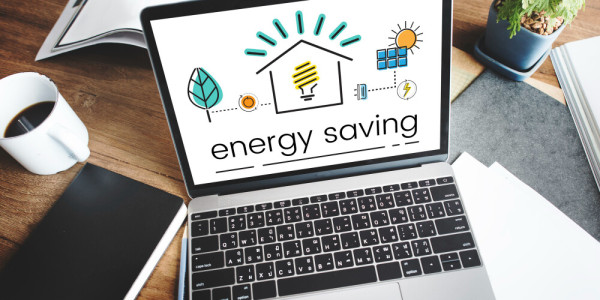
When considering solar installations for gardens, two primary options emerge: ground-mounted and rooftop systems. Each has its distinct advantages and considerations.
The choice between ground-mounted and rooftop systems depends on individual preferences, garden size, and specific energy needs. Both options offer efficient ways to harness solar energy, but their suitability varies based on the circumstances of each homeowner.
Take the first step towards clean, sustainable energy and request a quote today.
Get In Touch 0203 193 8888
0203 193 8888Embarking on the journey to solar-powered gardens begins with understanding the installation process. Initially, a site assessment is crucial, where professionals evaluate the garden's size, orientation, and any potential obstructions to sunlight, such as trees or neighbouring structures. This analysis ensures optimal positioning for maximum energy capture.
Once the best location is identified, the ground is prepared. This might involve levelling the area or adding foundational support, particularly for larger panel arrays. Following this, the mounting system is established. Depending on the chosen system, trenches might be dug to house electrical wiring that will connect the panels to your home and the grid.
The solar panels are then securely mounted, and all electrical components, including inverters and potentially battery storage systems, are installed. Lastly, the system undergoes thorough testing to ensure everything operates efficiently. With the correct set-up, garden-based solar panels can often be installed within a day, causing minimal disruption to your daily routine.
Get In Touch 0203 193 8888
0203 193 8888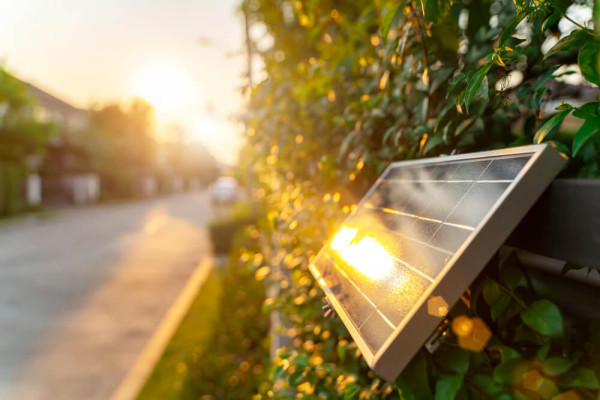
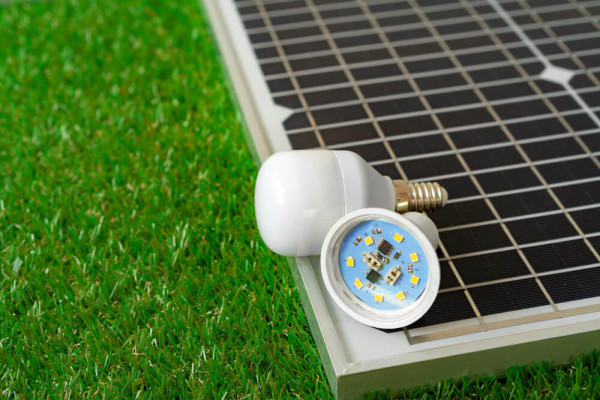
Utilising solar panels in your garden transcends just powering your home. The energy harvested can fuel an array of garden-specific appliances, making your outdoor space more functional and eco-friendly. Solar-powered garden lights, for instance, provide a delightful ambience in the evenings without drawing power from the grid. These lights, often equipped with sensors, activate as dusk approaches, creating a mesmerising luminous display.
Beyond lighting, solar energy can power water features, such as fountains or pond pumps, adding a dynamic element to your garden while promoting a balanced ecosystem. Solar-powered irrigation systems can also be implemented, ensuring plants receive consistent watering without wasting electricity.
Moreover, with the advent of outdoor solar-powered charging stations, even your devices can get a green energy boost while you relax amidst nature. Embracing solar power in the garden not only reduces energy bills but also enriches the outdoor experience with sustainable solutions that respect and complement the environment.
Get In Touch 0203 193 8888
0203 193 8888
Our membership with HIES means your money is covered by a bona fide insurance-backed guarantee from point of sale to two post-installation.

We only use tried and tested suppliers, so you know your investment is protected for years to come.

Our commitment to you is that we will only use the right people for the job. So you have peace of mind knowing that our tradespeople are some of the best.
In the UK, introducing solar panels to your garden often falls under 'permitted development', meaning planning permission isn't usually required. However, this comes with certain conditions. The installation should not protrude more than 200mm beyond the surface it's mounted on, and the top edge of the panel should not be higher than the highest part of the roof, excluding chimneys.
For those residing in conservation areas, Areas of Outstanding Natural Beauty, or listed properties, there may be additional constraints. Furthermore, if panels are positioned on ground level and cover over 50% of the garden space, you might require planning permission. Always consult with your local council's planning department before commencing any installation to ensure you're compliant with local regulations. Failure to adhere might result in you having to remove the system at your own expense.
Get In Touch 0203 193 8888
0203 193 8888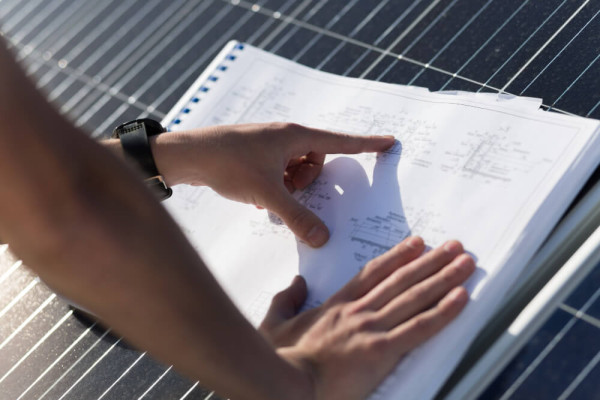
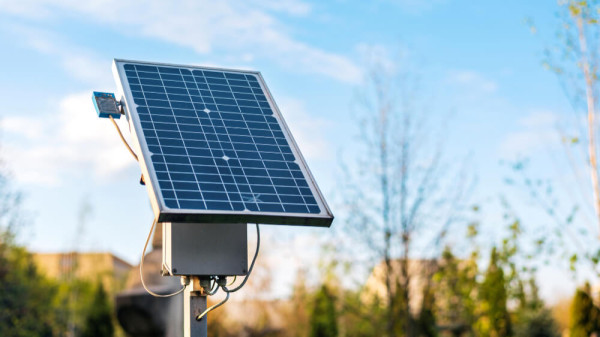
The angle at which solar panels are tilted has a significant influence on their efficiency. In the UK, the ideal tilt angle for solar panels is typically between 30 to 40 degrees to maximise energy capture year-round. This positioning ensures the panels are best placed to capture sunlight during the winter solstice, when the sun is lowest in the sky.
However, for those primarily concerned with maximising output during summer months, a tilt of around 20 degrees might be preferable. Ground-mounted systems offer the advantage of adjustability; therefore, the angle can be changed according to seasonal variations, if desired.
The direction the panels face is equally crucial. In the UK, south-facing panels are the most efficient as they receive the most sunlight throughout the day. However, east or west orientations can also be effective, capturing morning or afternoon sun respectively. A thorough assessment of your garden's orientation, potential obstructions, and your energy needs should guide the optimal positioning of your solar panels.
Get In Touch 0203 193 8888
0203 193 8888* Based on Current Energy Pricing

1 - 2
bedrooms
3 - 4
bedrooms
5+
bedroomsSavings without Battery
Yearly Bill Saving
£-
SEG Payment
£-
Total
£-
Savings with Battery
Yearly Bill Saving
£-
SEG Payment
£-
Total
£-
The cost of installing garden solar panels can vary based on numerous factors. Typically, in the UK, an average-sized solar panel system, comprising around 12 panels, can range from £5,000 to £8,000, inclusive of VAT. This estimation includes equipment, installation, and other related costs.
However, several factors influence this figure. The brand and quality of the panels chosen, the type of mounting system, and the complexity of the installation all play a role in the overall cost. Additional elements such as battery storage systems or advanced monitoring equipment can further add to the expense.
Yet, it's essential to view this as an investment. With reductions in energy bills, potential Feed-in Tariff (FiT) payments, and the eco-friendly nature of the system, many homeowners find that their solar panel systems pay for themselves within a few years.
Get In Touch 0203 193 8888
0203 193 8888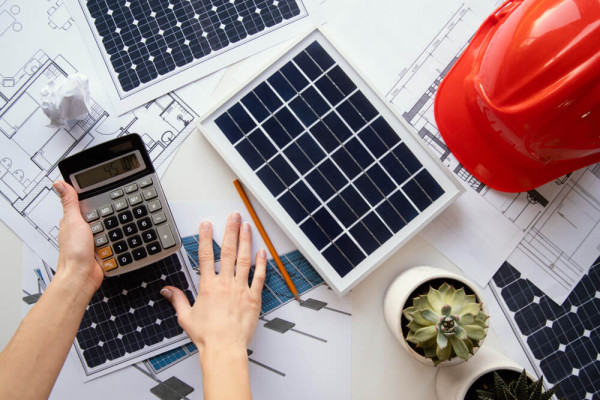
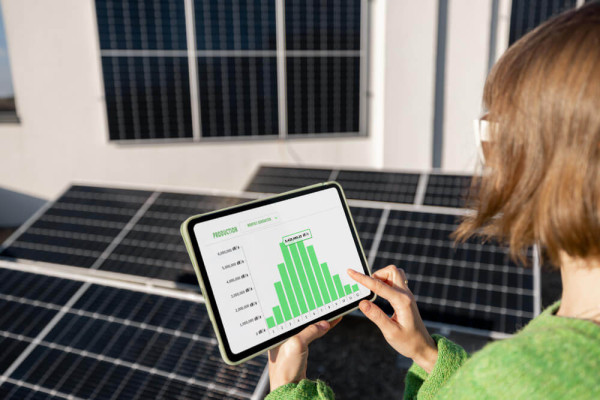
For your garden solar panel system to function optimally over its lifespan, proper monitoring, operations, and maintenance are crucial. Modern solar installations often come with monitoring systems that allow homeowners to track energy production and consumption in real-time, ensuring that any issues are quickly identified and rectified.
Maintenance is typically minimal, with solar panels requiring just an occasional cleaning to ensure they're free of dirt, leaves, and other debris that might obstruct sunlight. It's also wise to conduct a professional check-up every few years to ensure all components are functioning correctly and to replace any ageing parts.
Operations involve the day-to-day running of the system. While most residential solar panel setups are designed to be relatively hands-off, familiarising yourself with the system's workings can help in understanding energy consumption patterns and making the most of your solar energy.
Get In Touch 0203 193 8888
0203 193 8888